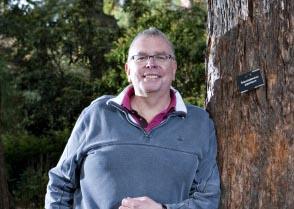
"Health wise I am feeling great. I am a big supporter of trials - it allows new treatments and drugs to be brought in.”
This study is looking at changes in the genes of prostate cancer cells. By studying these genetic changes the researchers hope to learn more about prostate cancer and how to treat it. The former title of this study was the ICGC Project. This study is supported by Cancer Research UK.
Please note it is very unlikely that you would get any direct benefit from taking part in this study, nor will it affect any treatment you have. The findings may help men with prostate cancer in the future.
You may be able to enter this study if you are attending the Royal Marsden Hospital and you are having surgery to remove your prostate (radical prostatectomy).
The researchers will ask your permission to take some samples of tissue from when you have your prostate surgery. They will look at these samples and other samples collected from earlier trials and studies. They will look at genetic changes in the prostate cancer cells and compare these with non cancerous diseases.
A small number of these samples may be shared with similar groups of researchers in other countries. All samples will have no name or other way to identify it as being yours (anonymous). They will be stored indefinitely and used only for research.
The researchers may also ask you for a blood sample and urine sample before and after your surgery. This is to compare any changes in the genes in the blood sample with those in the prostate cancer. This is because any changes may be due to your genetic make up rather than the genetic make up of the cancer. They will take them when you go to regular clinic appointments, so you don’t have to make extra trips to hospital.
There are no extra hospital visits if you decide to take part in this study.
You may have some discomfort, bleeding or bruising where the blood sample is taken.
If you decide to know any results then you may find that genetic findings are discovered which you were not expecting. Not everyone wants to know their results and you can decide what you wish to know.
Please note: In order to join a trial you will need to discuss it with your doctor, unless otherwise specified.
Professor Ros Eeles
Cancer Research UK
Dallaglio Foundation
Institute of Cancer Research (ICR)
The Wellcome Trust
If you have questions about the trial please contact our cancer information nurses
Freephone 0808 800 4040

"Health wise I am feeling great. I am a big supporter of trials - it allows new treatments and drugs to be brought in.”